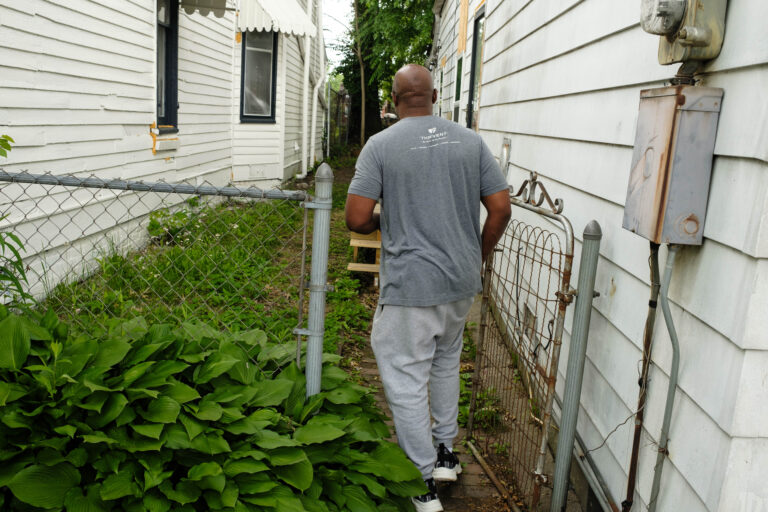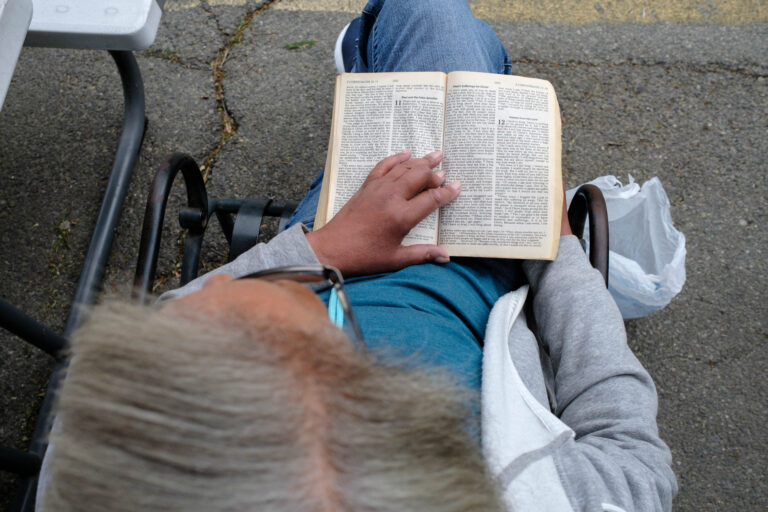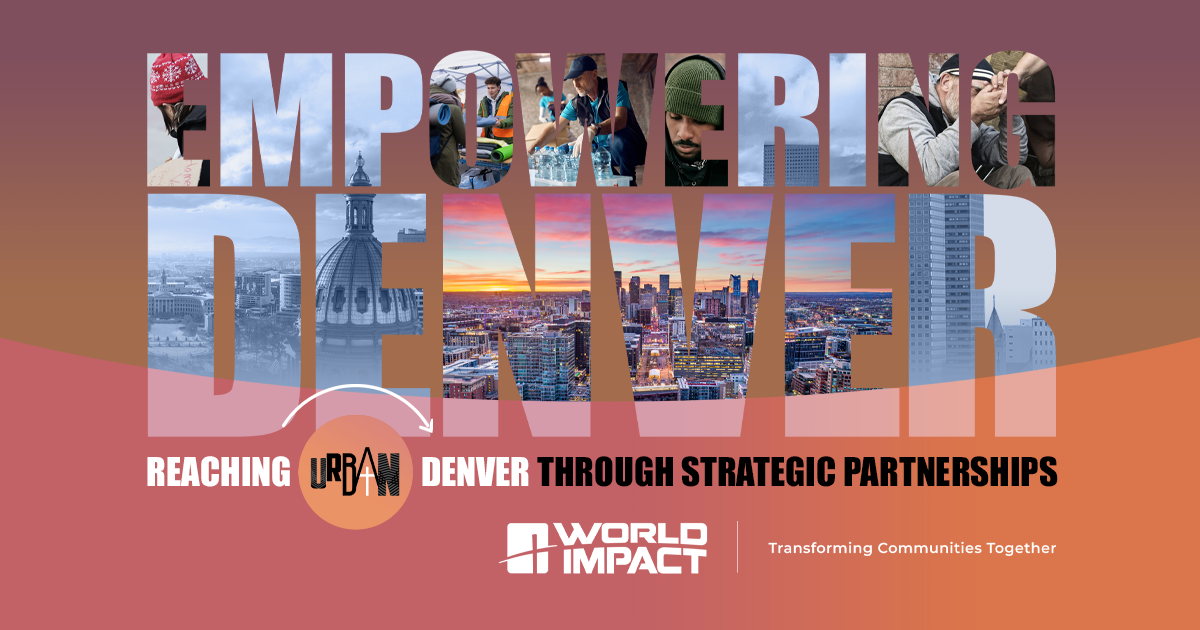
1. Charity and witness are not mutually exclusive.
Instead of viewing the impoverished as people among whom the church might be God’s witnesses, too many Christians treat them as humanitarian goodwill projects.
The truth is, charity and witness are not mutually exclusive.
Poverty is a condition people live in that needs to be addressed from a godly perspective. In his book Uncommon Church, Rev. Dr. Alvin Sanders, President and CEO of World Impact, confronts the hard truths about impoverished areas and considers strategies to do ministry there. The first strategy includes an awareness of God’s ultimate desire for the church. In this verse, Matthew quotes Jesus on the subject:
“And I tell you that you are Peter, and on this rock I will build my church, and the gates of Hades will not overcome it. I will give you the keys of the kingdom of heaven; whatever you bind on earth will be bound in heaven, and whatever you loose on earth will be loosed in heaven.” (Matthew 16:18-21)
As Jesus says, the church has the keys of the kingdom. Good works are vital, but the church’s witness is an underappreciated and underutilized resource when it comes to urban poverty.
Christ didn’t suggest that we establish a food pantry, a tutoring program, or a community development organization. Rather, He tells us to build His church—whether it’s in the suburbs, the desert, or a ministry for urban church planting. To increase advocacy for poor neighborhoods, healthy local churches need to exist—churches that reflect God’s holiness and minister accordingly.
ADVOCACY AS THE CHURCH’S DEMONSTRATION OF HOLINESS
Because holiness is at the core of the Christian faith, a healthy church is a holy space. The apostle Peter wrote, “Be holy, because I am holy.“ (1 Peter 1:16) We are told to follow God’s example of holiness in all that we do. Being holy entails being set apart for God’s service and demonstrates God’s nature. We have the pleasure of influencing events for God’s glory as we accomplish this. The fact that holiness is the path to victory is a crucial insight that many people overlook when providing ministry to those who are oppressed.
Rather, many erroneously believe that holiness is solely sought on a personal level. However, the church is to seek purity in society through structures that God has established, which is where advocacy comes in. And in our case, advocacy for poor neighborhoods in particular.
Social institutions are long-lasting, intricate organizations created to satisfy fundamental human needs. They are strong, last for generations, and have a huge impact on many people’s lives. Sociologically, the church is one of those institutions. On an institutional level, pursuing holiness entails working for a community’s common good.
Church planter? Urban Ministry & Church Planting: Five Paths For Maximum Impact
COMMON GOOD & HOLINESS
What do we mean by common good? The answer can be discovered by answering these two questions:
- What do those who have put their faith in Christ have in common with those who have not?
- What can the local church do to make the world better for them?
The local church needs to recognize differences and act on shared values. God wants every neighborhood to prosper; this is impossible if the community’s institutions aren’t managed well.
The second challenge is closely related but addresses something lacking in people’s attempts to advocate for poor neighborhoods.

2. Lack of Theology in Efforts to Advocate for Poor Neighborhoods
If we look back to the 90s, the trend was that people had solid theology but didn’t live it out well among the urban poor. Now, as the pendulum has swung today, I observe many people advocating in and for poor neighborhoods and underprivileged areas, but their acts are largely theologically unmotivated. As a result, the neighborhood church thus becomes secondary in importance. But, if we identify as Christians, this cannot be our practical theology. After all, there is no getting past this fact:
The Bible makes it very clear that the local church, wherever it may be found, is the hope of the world.
That means when we are asked what the biggest need is for the urban church, we don’t say clothes, food, or resources. We say “healthy local churches.” In other words, healthy local churches are God’s instrument of advocacy for poor neighborhoods.
HEALTHY LOCAL CHURCHES AS GOD’S INSTRUMENT OF ADVOCACY FOR POOR NEIGHBORHOODS
World Impact’s mission is to build up a healthy church in every community of poverty. We are seeing the fruits of our labor by helping to train and equip church leaders and workers to serve the urban poor. In fact, over more than 50 years, World Impact has trained more than 6,700 workers to serve in poverty areas, transforming communities worldwide.
When there are healthy churches in the neighborhood, they play a significant role in promoting improvements to the area’s quality of life, which includes items like food, clothing, and housing.
But in order to properly accomplish good deeds, we must promote the general welfare of the community. The objective is to create enough goodwill to foster wholesome relationships and spread the gospel, resulting in the incorporation of individuals into a local church.
Good deeds, advocacy, and benevolence are all beneficial, but what about the gospel’s good news? In order to alter lives and communities, advocacy motivated by a biblically grounded desire to show God’s love is required.
ADVOCACY FOR POOR NEIGHBORHOODS TRANSFORMS GENERATIONS
There is nothing simple about doing church in the hood. But advocacy driven by a biblically-based desire to demonstrate God’s love is needed to transform lives, neighborhoods, and communities.
We see communities transformed when we combine charity and witness and work to increase advocacy for poor neighborhoods by creating healthy local churches. And when we look closer, we can see individual lives being changed and generations of families being impacted in positive ways.

